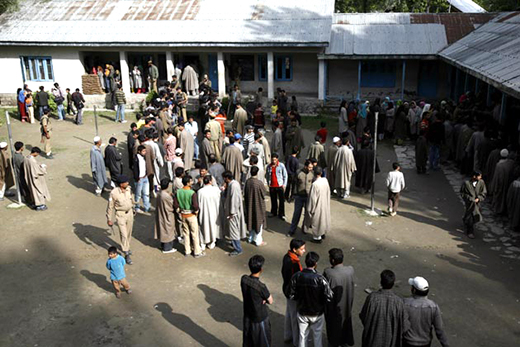Srinagar
Condemning government attitude of suspending 4G services, Private Schools Association of Jammu and Kashmir (PSAJK) on Friday in a statement said that educational institutes can’t wait endlessly for the situation to normalise and this is the reason schools started the initiative of online classes through social media to compensate for the loss of students.
The Association in a statement said that desperate times need desperate solutions and the social media is our only hope to keep our students engaged. “With COVID-19 positive cases emerging every single day all over the world, there is a bleak chance that the normal life would be resumed in the near future. One of its biggest impacts has been on the schools and students have been at the loss,” said G N Var president PSAJK. “But we cannot just sit and do nothing. Like the schools all around the world, we too started the online classes on social media platforms and it will continue despite limitations of low internet speed.”
The Association said that majority of schools have started online classes on platforms like Microsoft Teams, Skype, WhatsApp, FaceTime, and Google Meet, and the response has been good. “We have been receiving some complaints to Zoom but the company has updated its security and continued with our own few precautions, Zoom is a good platform for online classes,” said Var.
Regarding MHA advisory on Zoom, the Association said that it has been banned mainly for official meetings and the main reason is its routing of traffic through China. “Many of our schools have invested heavily in different professional educational software, which are both secure and compatible for classes, but that needs high-speed 4G internet and government is in no mood to give that to us,” said Var. “We even went to Supreme Court for the restoration of 4G but still nothing is happening. It seems the government is playing with the career of lakhs of students.”
Reiterating that Zoom is a secure platform PSAJK asked all of its users to follow guidelines issued by the National Cyber Coordination Centre, which use the platform without any worry.
“The guidelines are 1) The user ID and password for each meeting should be regularised, which means you should enter new credentials for each meeting.
2) Set up a waiting room for video meetings by default, so that there can be no unauthorised access by strangers.
3) Also, you are recommended to disable “Join” before enabling “Host” for a video meeting.
4) As far as screen-sharing is concerned, it should be done by Host only. The recording should also be restricted.
5) The Host should disable the “Allow removed participants to rejoin”.
6) The file transfer option should be limited or, better, disabled for certain video meetings that you think may not require file sharing.
7) The Host should lock a video meeting after checking all the participants have joined in.
8) The video meetings, when complete, should be ended rather than being just left by the host, as well as the participants. “















